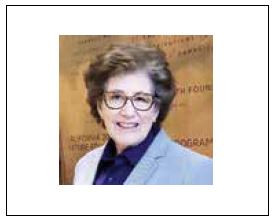
By Dr. Marcy Adelman–
Big, bold long-term policies and solutions are essential to ultimately resolving the challenges of our mental health system and the lack of affordable, accessible, and culturally appropriate services for older adults and adults with disabilities. The country’s aging population is growing exponentially and is increasingly diverse.
Policies on both the national and state level are now focused on addressing the lack of mental health services for older adults, especially older adults and adults with disabilities in underserved communities. While systemic solutions are being developed and implemented that address this long-standing gap in mental health services for older adults, such as programs to increase diversity in the mental health workforce, we must also provide more immediate relief to reduce suffering and improve lives now.
The impact of the pandemic on older adults has only served to make the need for mental health services even more urgent than before. The Department of Public Health and the Department of Disability and Aging should be talking together about this crisis in mental health services and come up with a coordinated response.
Pre-COVID-19 research has long identified the need for mental health counseling services to reduce levels of mental distress in underserved communities, e.g., LGBTQ, Black, Indigenous, Latinx/Hispanic, and people of color (BILHPOC). Elevated levels of mental distress among older adults in underserved communities is the result of stigma, discrimination, violence, and the inequities embedded in our socio-economic infrastructure.
Older adults and older adults in underserved communities, in particular have been most impacted by the pandemic. Older BILHPOC adults have been most vulnerable to COVID-related infection, hospitalization, and death. These high rates are the result of long-standing health and economic disparities and systemic racial inequities.
Two San Francisco studies conducted during the pandemic—one by the San Francisco Department of Disability and Aging (DAS) and the other by the LGBTQ Aging Research Partnership (LGBTQ ARP)—provide a clear roadmap for near-term impact funding to provide affordable, culturally appropriate, trauma informed mental health services to reduce suffering and improve the health and well-being of low income LGBTQ older adults and adults with disabilities, BILHPOC LGBTQ older adults, HIV long-term survivors, and Transgender non-conforming older adults.
Both studies reported that while the majority of LGBTQ participants were doing well during the pandemic and were satisfied with the services they received, such as assistance with groceries, medication, technology, medical care, help with chores, and economic assistance, many participants were unable to access the mental health services they needed. Participants in both studies reported that during the pandemic they experienced an increase in mental distress, such as feelings of isolation and loneliness and acute experiences of anxiety and depression.
The LGBTQ ARP survey of 500 LGBTQ older adults reported distressingly high levels of post-traumatic stress (PTS) symptoms. Forty-three percent of all LGBTQ participants self-reported PTS symptoms. LGBTQ BILHPOC individuals self-reported the highest rates of PTS symptoms at 52.3%. Fifty percent of HIV long-term survivors, slightly more than 46% of Transgender non-conforming older adults and 40% of white cisgender LGBTQ older adults, self-reported PTS symptoms. All groups of respondents reported that PTS symptoms increased during the pandemic.
It is well known that early treatment/intervention of anxiety, depression, and PTS symptoms leads to better mental health outcomes. Early intervention has also been shown to be the most cost effective in terms of the long-term effects on both a person’s mental and physical health.
In the last city budget, funding was made available for older adult mental health projects, but it is only a start; much, much more is needed. We need more affordable, accessible, and culturally appropriate mental health services for San Francisco’s uniquely diverse population of older adults. And we need it now.

Dr. Marcy Adelman, a psychologist and LGBTQ+ longevity advocate and policy adviser, oversees the Aging in Community column. She serves on the California Commission on Aging, the Board of the Alzheimer’s Association of Northern California, the California Master Plan on Aging Equity Advisory Committee, and the San Francisco Dignity Fund Oversight and Advisory Committee. She is the Co-Founder of Openhouse, the only San Francisco nonprofit exclusively focused on the health and well-being of LGBTQ+ older adults.
Published on January 13, 2022
Recent Comments